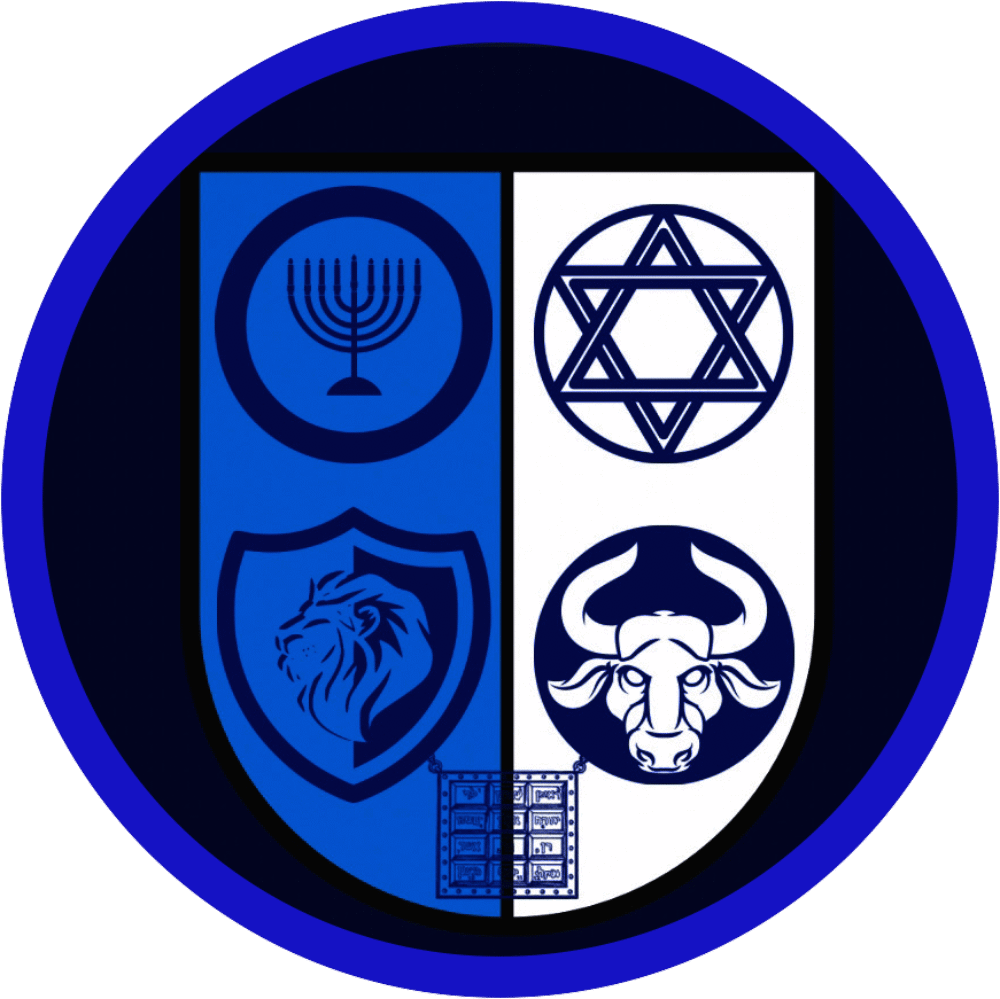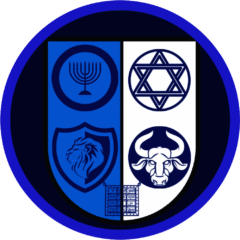
Parashat Re’eh is the 47th weekly Torah portion in the annual Jewish cycle of Torah reading.
At the beginning of the sidra Ree Torah, he repeats the command already announced in the 2nd verse of the 4th chapter: Everything that I command you, you will act vigilantly; you don’t add anything to it and you don’t take anything away from it. While in the first case it was a warning against the dangers concerning the internal affairs of the community of Israel, this place is a warning
before the Gentiles and false prophets.
The Torah commands to guard against their seductions, calls to revolt, influences that could turn Jews away from service to the Hashem and keeping His commandments. Even if a false prophet came to change even one letter Of the law, he deserves condemnation.
S.R.Hirsch states on this topic that the history of Israel must be made up of an unbroken chain of tradition whose the subject is the Law received by Moses and given to the people. Hard times will bring forth men inspired by G-d, who will give the Law a reliable interpretation, guide the people, establish the lines of development of Jewish thought. These prophets, in accordance with their designation, deserve absolute sovereignty, but only then, only in their own their integrity will not be challenged until they show themselves committed in word and deed to the true Revelation from Sinai.
They will strengthen their authority with external signs, miracles, with which G-d will endow them in order to better establish their sovereignty.
However, our sidra also brings up a question that immediately suggests itself: How to distinguish a false prophet from a prophet
the real one?
After all, G-d will allow both of them to perform miracles, and the people will thus be subjected to the most difficult test – they will have to refuse obedience to the false prophet, regardless of the miracles with which he reinforces his words, and on the contrary, the community Israel clings to true prophets, rightly encouraged by the miracles that surround these men.
So how do you tell the difference?
The text says that there will be a sign or a wonder (13:3) and then the false prophet will say:
“Let’s go after strange gods you don’t know.” Then it is up to Israel to distinguish between a prophet faithful to the Law and one who
who is going to betray him.
Then Israel will get rid of him who wanted to lead him astray, and he will not look at the miraculous signs that the false the prophet will draw attention in vain…
So the criterion is obvious. For any prophetic act to become legitimate, it must not leave the established framework immediately by Revelation and supplemented by oral tradition. Based on this determination is therefore relatively easy make the necessary exclusion if we judge the words of the “prophet” according to how they work toward fulfillment of the law. No man can ever lay claim to a better execution of G-d’s word than the means established by G-d’s Law. It is necessary to make a deliberate, firm decision.
By accepting G-d, we acknowledge that He can only speak with one word. Admit that G-d’s teaching would be divided, it is incompatible with the most elementary concepts of our understanding of the Creator. Judaism is preserved against any possible attempt and in spite of it, even if made with good will, only by the totality of the revealed teaching and the absolute credibility of the words from Sinai.
To reduce this Revelation to the level of collective inspiration, to give G-d’s Law the character of spontaneously revealed of religious feeling, clearly means to pass judgment on real Judaism, and a gradual one too, but none the less a real transition to the purest pantheism. Hence the law dealing with fakes prophets occupies a central place in Jewish theology.
It is to remind future generations of the only possible attitude if they are to preserve themselves in the face of impending trials
the purity and integrity of G-d’s Law. To the verse, if the sign and the miracle that (the false prophet) spoke of occur, said Rabbi Yosi Galilei: Behold, how much power this verse gives to idolaters, examining their intentions:
Even if they manage to stop (the running of) the Sun and the Moon, the planets and the stars – don’t listen to them. Why?
Because the Hashem your G-d is testing you to know whether you love the Hashem your G-d with all your heart and with my heart and with all my soul” (13:4).
But Rabbi Akiba said: Let us beware of thinking that the Holy One, blessed be He, would stop (the course of) the Sun and the Moon, planets and stars because of idolaters.
The text speaks of a true prophet who later became a false prophet, such as Hananiah ben Azur (Talmud, tractate Sanhedrin 90a).
The stated opinions reflect the opinions of mystical or rationalist interpreters. It is surprising that the series of commentators shares the opinion of Yosi Galilei and rejects the rationalist concept.
This is also Maimonides, who explicitly emphasizes that the false prophet acts by means of incantations and spell (see Hilchot Yesodei Hatora).
In The Guide of the Lost, Maimonides comments on the statement of verse 4 “because the Hashem your G-d is testing you.”
Know, he says, that whenever there is mention of a test in the Torah, it is for no other purpose and purpose than to show the people what they have to do or what to believe.
So the test consists, so to speak, in the fulfillment of a certain act, while it is not an act as such, because it is presented only as an example to follow, as a model.
Therefore, when it is said “that he may know whether you (indeed) love,” know that G-d already knew.
It is similar to another text “so that it may be known that I am the Hashem who sanctifies you” (Exodus 31:13).
There is the meaning: That the nations may know. And anyway here it says:
If a man arise who presumes to prophesy, and you see his miracles, which cause you to believe that he speaks truth, you will be aware that all this is happening only so that G-d will reveal to the nations how imbued you are and By His Law and able to understand G-d’s true nature without being deceived by the deceptions of the deceiver
and shook their faith in G-d.
This will serve as a support to all who seek the truth by looking for evidences of faith strong enough to they disregarded No Miracle Worker.
In fact, such a person would be asking to believe the impossible; however, it is only appropriate to rush to miracles if
it proclaims something possible, as explained in the Mishneh Torah (111,24).
The expression tidbakun from verse 5 – to (the Hashem) you will cling – an expression of burning love for G-d among the laws speaking of false prophets, for Israel it means: wholeheartedly reject the seductions of false prophets.
The definition of dvekut – binding – found expression in various Jewish schools. Let us at least quote the opinion of Ch. Luzzatta from his works Mesilat Yesharim.
In the commentary on Leviticus 19:2, he says that dvekut leads to holiness, which means living in a state of union with G-d until
measure, that no matter what a person does, he never separates himself from G-d, nor moves away from him.
And a person whose efforts are sanctified by the Creator reaches a stage where even his actions take on a material nature values of true holiness.
If one has previously submitted to the mitzvot – commandments – and thus without respite, with all sources of love and fear
strives to achieve G-d’s greatness, he gradually succeeds in detaching himself from material contingencies and concentrating your attention to true connection with G-d.
Then the spirit from above rests on man, the Creator sends his name on him, and man begins to resemble an angel
of the Hashem; all his deeds, even the humblest and most material, acquire the value of a sacrifice and a cult in honor of
the G-d.
In any case, Dvekut is considered the highest goal of religious perfection. It can be ecstasy.
However, the meaning of the term is much broader. It is a constant being with G-d, an intimate unity, a harmonizing of the human will and G-d’s.
As it is written in the Or ha-ganuz text from the very beginning of the 19th century: When a person carries out religious orders
or studies the Torah, the body becomes a throne for the soul… and the soul a throne for the light of the Shechinah, G-d’s presence above us.
The light spreads around man, and he, resting in the midst of the light, rejoices and trembles.


